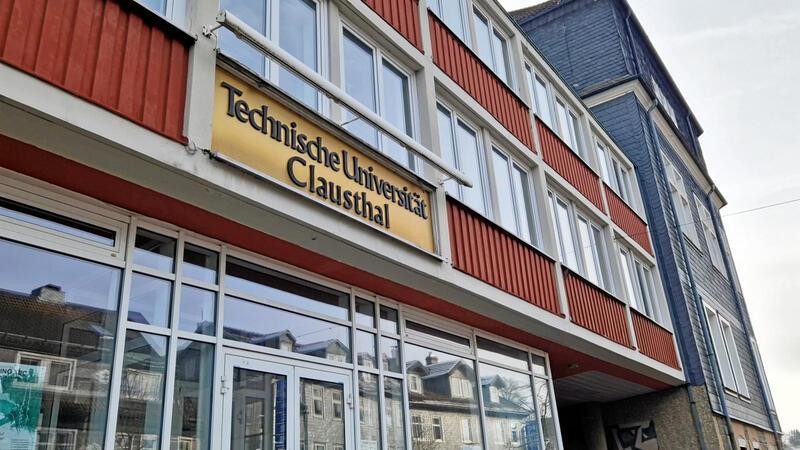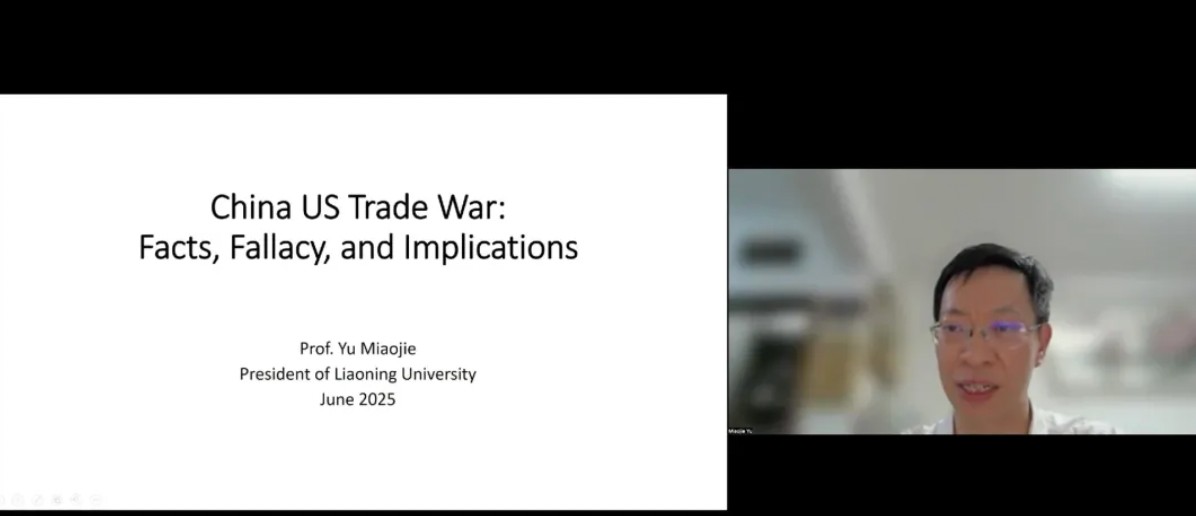
On June 25, 2025, the “China Week 2025” series at Clausthal University of Technology in Germany entered its third day. That afternoon, the university hosted a thematic seminar titled “China-EU Economic Relations under the Background of the Trade War”, focusing on institutional dialogue, industrial transformation, and cooperative opportunities amid intensifying global geo-economic tensions. Held at the Aula auditorium, the event was livestreamed via Zoom and the China-EU Carbon Neutrality Platform, drawing over 1,000 attendees both online and offline. The seminar brought together policy experts, scholars, and industry consultants from Germany, China, Italy, and other countries for in-depth exchanges on trade governance, green technology cooperation, and institutional trust-building. The event was co-hosted by Professor Roland Menges from the Department of Economics at Clausthal University of Technology and Professor Hou Zhengmeng, Director of the China Competence Center.
Professor Yu Miaojie, President of Liaoning University, was invited to deliver a keynote speech titled “An Interpretation of the China-U.S. Trade War” via video link. Drawing on macroeconomic data, global value chain structures, and policy logic, he provided a comprehensive analysis of the evolution and future trajectory of U.S.-China trade frictions. Professor Yu noted that since 2018, the U.S. has implemented three rounds of escalating tariffs against China, eventually expanding to consumer goods. These measures have disrupted the global trading system and generated long-term impacts on both economies.
He emphasized that traditional bilateral trade surplus statistics no longer accurately reflect the true distribution of benefits under global production fragmentation, and that trade analysis should place greater focus on value-added indicators. While China demonstrates export strength in manufacturing, this does not equate to control over value chains; meanwhile, U.S. tariffs have failed to meaningfully revitalize domestic industries, instead exacerbating inflation and investment uncertainty.
Commenting on China's response strategies, Professor Yu highlighted the resilience shown by Chinese manufacturing in select sectors, while acknowledging external constraints in services trade, outbound investment, and access to critical technologies. Given the deep economic interdependence between China and the U.S., he argued that any attempt at "decoupling" would be highly costly and unsustainable.
He concluded by calling for rational dialogue and rule-based reconstruction as the foundation for rebuilding U.S.-China relations, and for providing strong support to the stable development of bilateral ties and the recovery of the global economy.

Other speakers at the seminar included Professor Thomas Heberer (University of Duisburg-Essen), green transition policy advisor Ms. Arvea Marieni, Professor Li Yuan (Executive Dean of the Institute of International Studies at Shandong University), renowned German sinologist Professor Helwig Schmidt-Glintzer, and Dr. Meng Fancheng (member of the German delegation of the China-German Dialogue Forum and visiting professor at Tongji University). They each shared insights on topics such as institutional competition between China and the EU, cooperation in green industries, global governance frameworks, and macroeconomic logic, collectively offering diverse perspectives and constructive ideas for the future of China-Europe relations.